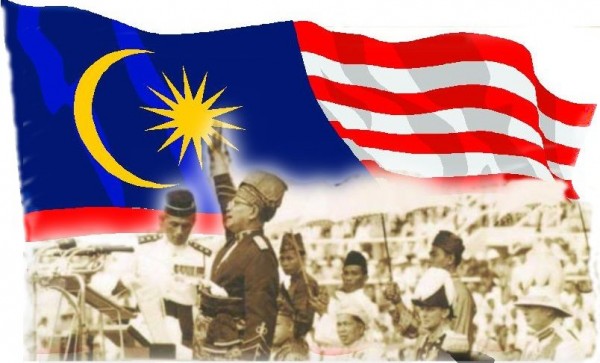“Eh how are you lah?”
As Malaysians, we can get very, very creative with our word choices and the way we speak. Forget the fancy and proper vocabulary or grammar, it’s all good as long as we understand each other. Only in Malaysia, we can speak a full sentence with a combination of different languages and still understand each other. Why? Well, it’s simply because we are so used to speaking broken English and Malay that it makes us somewhat unique.
Apart from the mixture of languages in one sentence, we also then to end almost every sentence with the word “lah”. For example: “How are you lah?”, “No lah, I’m not hungry lah”. Admit it, you do it just as often as everyone else does. It’s a reflex, second nature to us Malaysians. Today, in conjunction with celebrating Independence, here’s a list of some of the most common slangs used by Malaysians:
1. Boss / Anneh
Somehow in Malaysia, everyone’s a boss. And no, we don’t literally mean boss as in the head of an organisation or owner of a company. We just tend to call each other “boss”. Especially, the waiters at a Mamak stall. You need to order something, you go “Boss, ice kosong satu” or “Anneh, ice kosong one”. When you need them to calculate the bill, you go, “Boss, kira”. Correct or not?
2. Ah, no la.
Usually used in a more sarcastic manner, “Ah, no la” is Malaysians way of saying DUHHH! For example, in response to obvious questions like “Did you colour your hair?”, one would reply with “Ah, no la. The colour magically changed by itself”.
3. Bro / macha / dei
Pretty much a way of greeting or calling each other. Like how girls call each babe, guys call each other bro, macha and/or dei in Malaysia. Also, Malaysians tend to shorten our sentences. For example, instead of asking someone “How are you?”, we say “How you?”. For effect, you can even add a “lah” to the end of that sentence. Like, “How you lah?”
4. Yum cha
Derived from the Cantonese dialect, Yum Cha when translated directly means “drink tea”. However, for us Malaysians it means “hang out” in very casual manner. Instead of saying, “Hey, lets hang out” we say, “Come yum cha”.
5. Lah, ma, lor, wor, wei
You can find these nouns in almost every sentence. Be it the beginning, middle or end. For example: “Let’s go eat lah”, “I didn’t know leh”, “Yalor, not my fault also”, “Ya wei, what to do wei?”, “Because he’s hot ma!”. I’m pretty sure you, yes you, the person who’s reading it, can imagine yourself using these nouns on a daily basis. Don’t worry, I do too ![]()
6. Leng lui / leng chai
Also, derived from the Cantonese dialect, “leng lui” means pretty girl and “leng chai” means handsome boy. While these are usually meant for complimenting people, we Malaysians sometimes address random people by calling them “leng lui” or “leng chai”. Sometimes, we would rather say “Eh, leng chai” or “Eh leng lui”, rather than the traditional “excuse me” which works perfectly fine in grabbing someone’s attention. Nope, we’re too cool for “excuse me”.
7. Cincai
Cincai literally means whatever or anything. Ie: When a Malaysian asks a fellow Malaysian this, “Hey, what do you feel like eating?”, they usually reply with “cincai la”. It can also mean “simply”. For example: “She cincai do!” which literally means, “She simply do!” but actually means (in perfect English), “She didn’t put effort in doing it”.
8. On the way
Okay now to most people “on the way” actually literally means that someone is on the way. But to Malaysians, “on the way” can also mean, “I’m still watching TV at home”, “I’m getting ready”, or “I’m leaving my house in 30 minutes”. How many times has someone told you that they were on the way and made you wait at least a good 10 to 20 minutes? And how many times have you done the same?
9. Bo Jio / Tak Ajak
Bo jio (Hokkien) or tak ajak (Malay) when translated directly to English means “never invite”. We normally use it when people don’t call or invite us for an event, party, social gathering, or outing.
10. Belanja
Derived from the Malay language, “belanja” means treat. As in to treat someone, be it drinks, food or a movie. We usually use the word “belanja” when people ask us out. Ie: “Hey, lets go drinks” is responded with “You belanja ah? Can”.
We hope you’ve enjoyed reading this and please do share your most used slangs with us. After all, sharing is caring hor!
Happy Merdeka weekend, everyone ![]()







